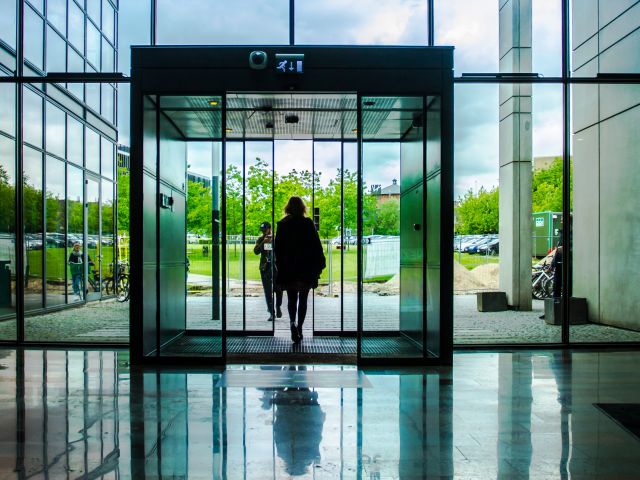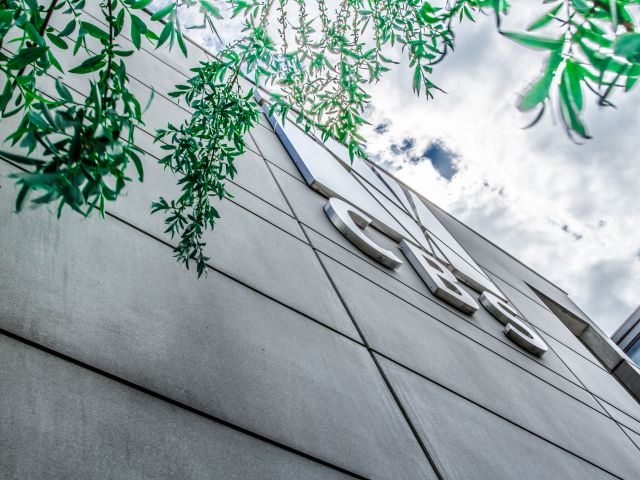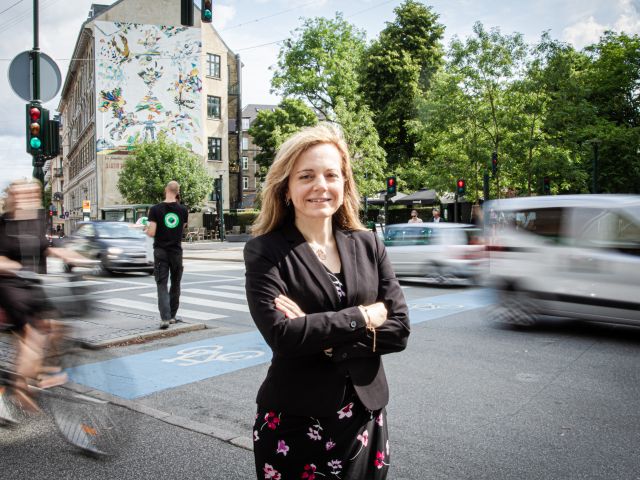94 students got their grades mixed up: Should students be worried that other grades are flawed?

Three CBS students are worried that other grades of theirs might be flawed after discovering a typing mistake of 94 grades. (Photo by Anna Holte)
A typing error was the reason why 94 students out of a class of 104 got their grades mixed up before the summer holiday. Now, some of the affected students are worried that other grades might be flawed too. The Acting Director of the Study Administration at CBS calls the case “unfortunate” and “extraordinary”. He explains why students shouldn’t be worried about their grades being flawed and how typing errors can be avoided.
“One was supposed to get a 10, but got a 00. Another got a 4, but should have had a 10. And I got a 12, but should have had a 7. It was a complete mess,” says Mark Michael Olskær Hansen, who studies cand.merc.jur at CBS, about the peculiar moment when he and his classmates realized that their grades from the multiple-choice exam in the course ‘Strategisk kontrahering i et internationalt virksomheds perspektiv’ had been mixed up.
Right after the exam in June, the 104 cand.merc.jur students got the grading instructions. Based on this, the students could calculate their grades, meaning that they knew their grade before it was typed into CBS’ digital exam system.
But when the students got a notification about the grades from the multiple-choice exam on July 1, 90 percent of the grades didn’t correspond to the calculated grades. This, according to Mark Michael Olskær Hansen, is what led to the students bombarding their teachers Professor Bent Petersen and Professor MSO Kim Østergaard with emails about what was going on.
It’s an unfortunate case and, from what I’ve been told by Legal, it’s an extraordinary case as well
René Kramhøft Jakobsen
Two days later on July 3, CBS Legal sent a document to the students explaining that a typing error had resulted in the grades being paired with the wrong students, and that the grades were being corrected right away.
“I’m glad that the grades were changed right away, but the most worrying thing about this is that it’s easy to detect a mistake like this after a multiple-choice exam where you get the grading instruction, but with any other kind of written exam it might be much harder. That’s a little scary,” says Victor Schultz, Mark Michal Olskær Hansen’s classmate, who got a 4, but should have had a 12.
Another classmate, Jakob Dinesen, agrees.
“It’s manual work that’s at fault. We’re taught about efficient processes, so why do we have a system that allows for these kinds of mistakes?” he asks and continues:
“I work with the optimization of computer systems, so when CBS can’t even manage the grades, it’s not good enough. But for me it was more the frustration of not knowing whether this was the first time it happened,” he says.
The Acting Director of the Study Administration at CBS, René Kramhøft Jakobsen, apologizes for the mistake, which he calls “extraordinary” and stresses that CBS students shouldn’t worry about the accuracy of their grades.
“It’s an unfortunate case and, from what I’ve been told by Legal, it’s an extraordinary case as well. And then it’s important to bear in mind that each year, CBS hands out 150,000 grades,” he says and continues:
“I can’t of course say that mistakes like these won’t happen again, because humans make mistakes. But if mistakes happen we always try to use them constructively to see whether we can improve systems, processes or our services. When all is said and done, the students shouldn’t be worried about their grades being flawed.
Every year, CBS has, according to René Kramhøft Jakobsen, the grades checked by a firm of accountants to verify that the procedures for giving out grades have been adhered to.
A feature can avoid these kinds of typing errors
The teachers of the course, Bent Petersen and Kim Østergaard say that it’s their responsibility to type in the grades in the Digital Examination (DE) system and it’s their fault that the grades were mixed up.
René Kramhøft Jakobsen explains that when the teachers typed in the grades, the student lists were different to each other. The teachers’ list had all of the students, while the list in the system only had the students who actually did the exam, and that created the mix-up of students and grades. But a feature in the system, which would ensure that the list only had the students that did the exam, could prevent this from happening, he explains.
“We’ve told the examiners about this feature, but it seems that we can do better and we will,” he says and adds that they will send out information to the examiners to remind them about the feature.
“But maybe in time, when the law and technology are in place, machines will take over the handing out of grades
René Kramhøft Jakobsen
But why hasn’t CBS got a system that transfers the grades from the multiple-choice exam directly to the examination system?
“Long story short, machines or computers aren’t allowed to hand out grades. Only an examiner can hand out grades. That’s the law. So when the grades are given, it’s the responsibility of the examiner to type them into the system,” says René Kramhøft Jakobsen.
Getting the right grades is important
The students of cand.merc.jur often apply for jobs at advocacies. This, according to the three students, is a conservative sector that values good grades. This makes it even more important to know that the grades given are correct, they argue.
“If you want a job in one of the big advocacies, banks or consultancies, good grades count for a lot. They are extremely conservative when it comes to grades, and I myself don’t have a single 4 yet, so it really does matter that the grades are right,” says Victor Schultz.
Mark Michael Olskær Hansen agrees.
“Grades might not matter that much in terms of applying for a job for other programs, but they matter a lot to us. Having a high grade-point average is super important, as it’s what they judge us on,” he says.
René Kramhøft Jakobsen explains that the case has been up for discussion, and at the moment there are discussions about creating new updates to the system.
“The system was developed in collaboration with five other universities in Denmark, and we’re currently working on a new feature where it’s possible to do a multiple-choice exam directly in the system. The examiners, however, will still have to type in the grades themselves,” he says and adds:
“But maybe in time, when the law and technology are in place, machines will take over the handing out of grades.”





































































































































Comments